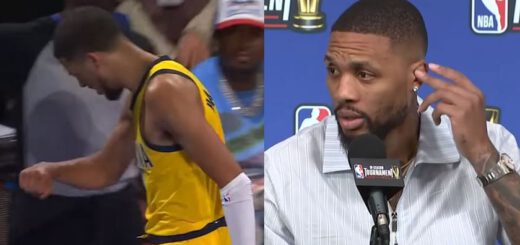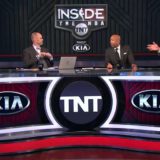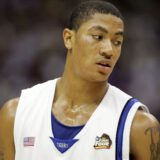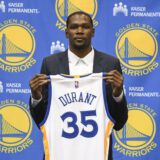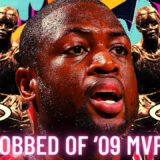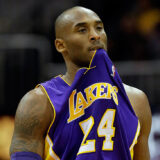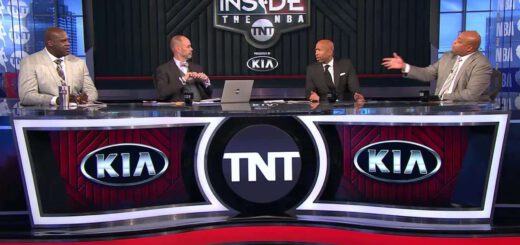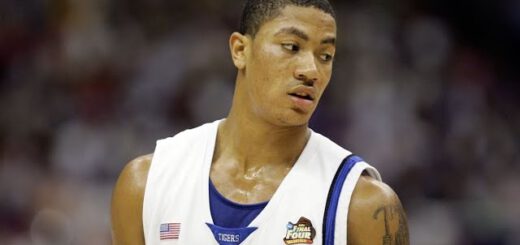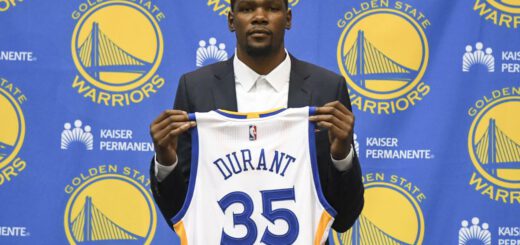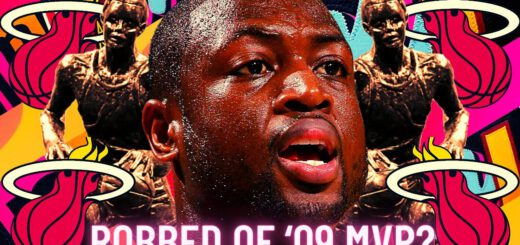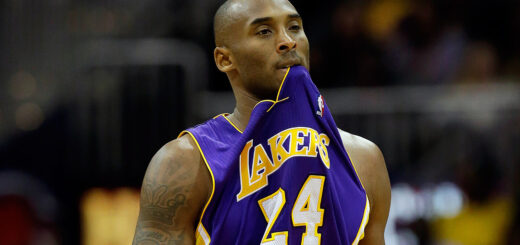Life Without MJ: The Rebirth of Scottie Pippen
Drafted by the Seattle Supersonics as the fifth overall pick in the 1987 NBA draft and later landing in Chicago via trade on draft day, Scottie Pippen was considered one of the most talented players of that year. The Chicago Bulls saw something special in the 6′ 8″ workhorse who averaged 23.6 points, 10.0 rebounds, and 4.3 assists while knocking down 60% of his shots in his senior year at the University of Central Arkansas. Pippen would find himself paired with rising superstar Michael Jordan. Chicago had secured perhaps the most talented tandem in NBA history.
Michael Jordan’s Bulls struggled in the playoffs from 1985 up until Scottie Pippen and head coach Phil Jackson arrived. Chicago won its first title in Pippen’s fourth full season, as both he and Michael entered their primes. Another few seasons alone in Chicago without a promising player beside him, Michael Jordan would have struggled if Pippen weren’t there. Pippen had a shaky start in the NBA, finishing his rookie season with 7.9 points and 3.8 rebounds per game, but doubled his scoring and rebounding per game the next season, as he became a starter. Season-by-season improvement earned Pippen Gongfu Tea Cup debut NBA All-Star selection in 1990. “Pip” was emerging as one of the best all-around players in the league; he could do it all. Scoring wasn’t a problem, nor were rebounds–not with his size. His impressive passing ability and speed allowed him to snatch 2.4 career steals per game.
This is not a profile on Scottie Pippen, but an imagining of how much bigger of a star Scottie Pippen could have been if he wasn’t in Michael Jordan’s shadow during his prime. The statistics show during Jordan’s first retirement in 1993.
Batman and Robin. Michael Jordan and Scottie Pippen. Considered the greatest duo of all-time, Jordan and Pippen had extreme success winning three straight NBA championships in the early 90’s. A fourth title seemed conclusive heading into the 1993-94 season, but when Michael Jordan suddenly announced he was stepping down from the league to play baseball, Pippen, his teammates and the world were stunned. Why would the best player in the world retire in his prime? Sure, this action plagued Chicago’s quest for a fourth straight title, but it allowed Pippen to lead a team for the first time in his career and become the alpha dog in the “Windy City.”
In his first six years in the pros, Scottie Pippen averaged 16.0 points, 6.6 rebounds, 5.1 assists, 2.0 steals and 1.1 blocks while shooting 49% from the field alongside Michael Jordan. “Pip” was a three-time champion, two-time all-star, one-time All-NBA Second Team, and one-time All-NBA Defensive Team by the time of Jordan’s absence. Pippen states, “[Michael Jordan’s retirement] was pretty shocking, and very emotional.” Pippen had no doubt, though; he took it as a challenge. A few players from the three-peat teams remained in Chicago including B.J. Armstrong, Bill Cartwright and Horace Grant, while sharpshooter Steve Kerr, and big men Bill Wennington and Luc Longley were added to the new look team. The three acquisitions of Kerr, Wennington and Longley were important, but the addition of european sensation Toni Kukoc was huge. Kukoc, one of the greatest european players ever, was Scottie Pippen’s new running mate in Chicago. The Chicago Bulls were off to a shaky start, going 5-7 in their first twelve games, but exploded to win their next 30 games over a 35 game spread. Pippen let the country know he was the man in Chicago, not just by putting up consistent showings during the first half of the season, but by winning the 1994 All-Star Game MVP award. Pippen stole the show, finishing with 29 points, 11 rebounds and four steals against the top tier players in the league.
Heading into the 1994 NBA playoffs with the second-best record in the Eastern Conference, and third-best record in the entire league, Scottie Pippen and the Chicago Bulls were on their way to the postseason for the first time without Michael Jordan, and looked to make a statement that the surrounding teammates of the league’s best player had notable skills of their own. The Bulls finished the season with a 55-27 record, and completed their fifth straight 50-plus win season. Not only did the Bulls have a fantastic year, but so did Scottie Pippen. Pippen was up against Hakeem Olajuwon and David Robinson in the MVP voting, but eventually fell short to Olajuwon for the award. Pippen ranked eighth in scoring (22.0), 23rd in rebounding (8.7), 19th in assists (5.6) second in steals (2.9), and averaged 0.8 blocks per game while shooting an impressive 49% from the field. Pippen carried the team on his back during Jordan’s absence.
The Chicago Bulls got off to a hot start in the 1994 NBA Playoffs, blowing Mark Price and the Cleveland Cavaliers 3-0 in the opening round. Then, for the fourth straight year, the New York Knicks relived their long rivalry with the Bulls, just this time, No. 23 was not there to facilitate. In the next round, Patrick Ewing and the Knicks took a commanding 2-0 series lead. Chicago struck back, taking the next two contests at home evening the series at two games a piece. Chicago would eventually fall to New York in six games. The Knicks later defeated Reggie Miller and the fifth-seeded Indiana Pacers in the conference finals before ultimately falling to the champion Houston Rockets in seven games in the Finals. Bulls big man Bill Wennington praised Scottie Pippen at the end of the 1994 postseason, revealing, “Scottie was the heart and soul of that team. He put that team on his shoulders and was taking all the big shots.” B.J. Armstrong agreed, saying, “He was just incredible. He was running around and doing things, really getting a chance to explore every aspect of his game. I think it really answered a lot of questions in the back of his mind.” Pippen, really did it all.
Take a look at Scottie Pippen’s 1993-94 season compared to the greatest small forwards ever at 28 years old (Via. NBA.com):
Elgin Baylor (1962-63): 34.0 points, 14.3 rebounds, 4.8 assists in 42.1 minutes
Larry Bird (1984-85): 28.7 points, 10.5 rebounds, 6.6 assists, 1.6 steals in 39.5 minutes
Julius Erving (1978-79): 23.1 points, 7.2 rebounds, 4.6 assists, 1.7 steals in 35.9 minutes
John Havlicek (1968-69): 21.6 points, 7.0 rebounds, 5.4 assists in 38.7 minutes
LeBron James (2012-13): 26.8 points, 8.0 rebounds, 7.3 assists, 1.7 steals in 37.9 minutes
Scottie Pippen (1993-94): 22.0 points, 8.7 rebounds, 5.6 assists, 2.9 steals in 38.3 minutes
What if Scottie Pippen was the top dog on all of the teams he had ever been apart of during his career? What if he had a dominant big man playing alongside him? What if there was no Michael Jordan from the start? A series of questions came about after Pippen’s extraordinary 1993-94 season. He erased all doubts about whether he was just a “sidekick” who played so well because of Michael Jordan. Scottie Pippen was now seen as a top-tier star across the National Basketball Association.

